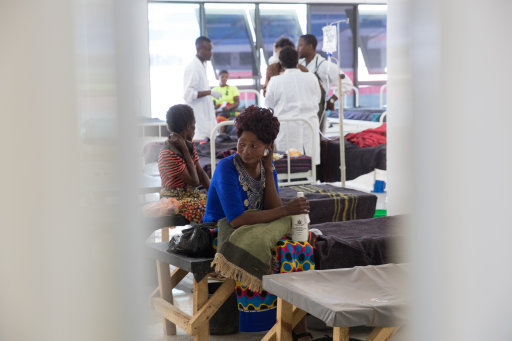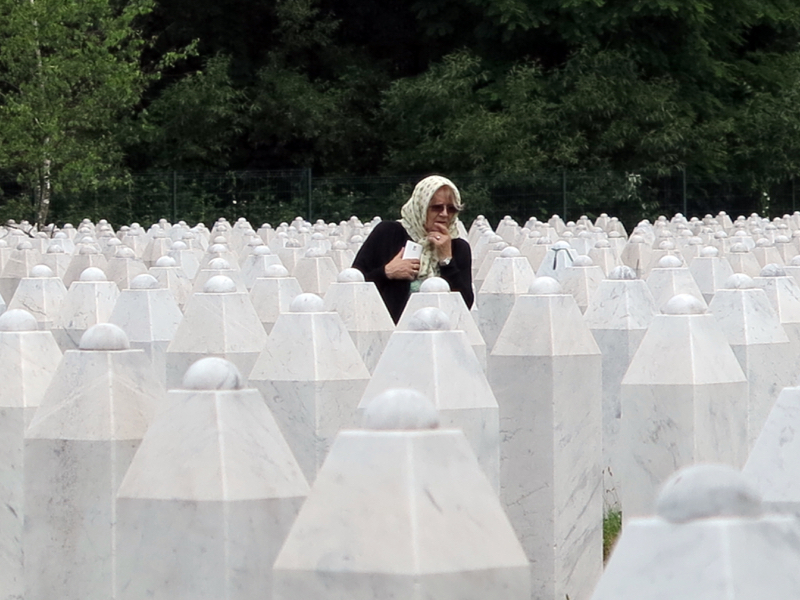Twenty five years after the outbreak of hostilities in the Balkans that led to years of bitter conflict church leaders have said that the root causes of conflict have not yet been resolved.
Peace and justice are still far off in Bosnia-Herzegovina, which lacks "real democracy, human rights and economic and social development", Catholic Bishop Franjo Komarica of Banka Luka 25 told Italy's Servizio Informazione Religiosa in an interview commemorating the start of the 1992-5 Bosnian war.
“The Dayton Peace Accord stopped the bloodshed, but not the war here - it brought neither rights nor justice to inhabitants of this destroyed country", said Bishop Komarica. "The bitter fruits of the Accord and its implementation have since caused struggles and quarrels among local politicians. Corruption, crime and instability, present at all levels of government, have prevented our country from being rebuilt and gaining a European perspective".
The war ended with the formation of separate Serb- and Muslim-dominated territories in a unitary state after leaving 100,000 dead and 2.2 million displaced.
Bishop Komarica said hundreds of Catholic-inhabited villages were still suffering the effects of "real ethnic cleansing", while there was a "lack of political will" to apply law and justice via the country's courts. The bishop added that Russia, Turkey and several Arab countries had interfered repeatedly in Bosnia-Herzegovina, while one-time war criminals had enjoyed protection and "numerous benefits, including political posts".
"Our citizens have trouble understanding why the world's most influential countries - the US and Russia, the European Union, not to mention Turkey and the Islamic countries - have failed to make our small country fully democratic and allow its inhabitants to live in peace with assured rights", Bishop Komarica told SIR. "We need institutional reforms, political choices directed at the common good, respect for rights and duties, economic and social development - all on the basis of federalism, decentralisation, subsidiarity and the legitimate political representation of Croats, Serbs and Bosnians, as well as of other minorities. Unfortunately, this is still far from being achieved".
Meanwhile the head of Serbia's Orthodox Church has warned that his country will "never give up" Kosovo, whose 2008 independence has now been recognised by most Western countries. “Kosovo may be seized and occupied, as it is today, but Serbia can never say 'We surrender it' - what's given up is lost forever, whereas what's taken by force can be regained the same way", Patriarch Irinej Gavrilovic told his country's Hram TV. "Serbian political leaders are of the same mind, and our country is making efforts to keep Kosovo in Serbia and find a political settlement pleasing to both sides. We cannot imagine Serbia without Kosovo".
The 87-year-old Orthodox leader spoke in the run-up to the ninth anniversary of Kosovo's February 2008 independence declaration, which has since been recognised by 111 of the United Nations' 193 member-states, and 23 of 28 European Union countries, but not by the Vatican.
Meanwhile, in a separate interview with the Belgrade-based Vecernje Novosti daily, he said he was "full of appreciation" for the Pope's efforts to avert conflict over the projected canonisation of the Croatian Cardinal Alojzije Stepinac (1898-1960), who was beatified as a martyr by Pope John Paul II in 1998, by setting up a Catholic-Orthodox commission of historians. However, he added that sensitivities over Stepinac's historic role were being exploited by "political forces" and some Church leaders in Croatia, and said he believed inter-church ties were "still too fresh" for a visit by Pope Francis to Serbia.
The Catholic Church's five dioceses make up less than seven per cent of the 10.8 million inhabitants of Serbia and Montenegro, which became separate states in 2006, and have complained in the past of hostility from the predominant Orthodox Church, whose leaders were on opposing sides during the Balkan war.
PICTURE: Cemetery at the genocide memorial in Srebrenica, Bosnia-Herzegovina, pictured in 2015 ©PA



 Loading ...
Loading ...